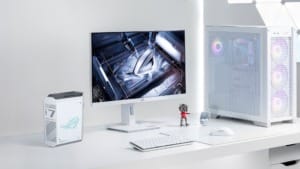Chinese start-ups target the US market with robotic pool cleaners
Chinese start-ups like Beatbot and Hippobot are entering the US pool cleaner market, using smart technology to compete with Western brands.

Chinese tech start-ups specialising in robotic pool cleaners are making waves in the American market, aiming to replicate the success achieved by China’s electric vehicle (EV) sector. With over 30 million private swimming pools globally—90% in the United States and Europe—the demand for efficient pool cleaning solutions is rapidly expanding. According to the Pool & Hot Tub Alliance, this market grows by around 5% yearly, offering new opportunities for companies with smart technology.
Table Of Content
Chinese manufacturers take the lead in pool robot technology
SellerSprite, an online market research tool, has reported that over half of the top-selling robotic pool cleaners on Amazon in the United States were produced by Chinese companies. This success has inspired several Chinese start-ups to enter the market, backed by strong financial support. Beatbot Tech, for instance, launched just two years ago and has already secured nearly 500 million yuan (US$69.14 million) in funding, seizing 85% of the high-end market for pool robots priced above US$1,400.
This growth has encouraged other companies to follow Beatbot’s lead. Hippobot Technology, a notable start-up in this space, is set to release its first pool-cleaning robot this month. Hippobot’s co-founder, Mark Li, explained that the company applies advanced technologies from other industries to create pool robots that outperform established Western brands. “Our strategy is to integrate smart technology from other fields to make our pool cleaners superior to traditional Western models,” Li said.
Hippobot’s first model, priced at an affordable US$400, includes features such as extended battery life, environmental sensing, mapping, and navigation—all innovations that help it stand out. Benefitting from China’s advanced manufacturing and automation supply chains, production costs for each unit are only 600 yuan (US$83). As mass production begins next year, these costs are expected to drop even further, making the robots accessible to a broader market.
Expanding into global markets and other smart technology applications
Chinese tech companies aren’t limiting their smart technology to pool cleaners. They’re also exploring areas like robotic lawnmowers, drones, and agricultural machinery, focusing on capturing global market share. “The rapid expansion of Chinese pool robots worldwide will support research and development in related fields, such as ultrasonic sensors, and may even pave the way for further advances in smart manufacturing,” Li said.
This swift development has allowed companies like Hippobot to innovate more frequently than their Western competitors, who typically release new models every few years. Hippobot, on the other hand, has already begun research and development on its next-generation pool robot.
However, Chinese start-ups need help in their global expansion efforts. While they currently benefit from tariff exemptions, potential new trade barriers could affect their market share. Li expressed concern about this, noting that if tariffs were imposed, it would likely drive up prices. “We may need to consider shifting some production to Southeast Asia to maintain our pricing, though this isn’t a straightforward decision for a start-up,” he noted.
Despite these obstacles, Chinese companies continue to attract investor interest, although securing funding in Western markets can be challenging. For Li, the rapid return potential of Chinese tech companies should make them attractive to global investors. “If a promising Chinese company can deliver returns that are ten or even a hundred times the investment, why not support it?” he added.
Chinese start-ups look to expand global presence
As Chinese pool-cleaning robots gain traction, they may lead to broader developments in China’s smart manufacturing sector. The success of robotic pool cleaners is already reminiscent of earlier ventures, where companies began with sweeping robots and ultimately expanded into the EV sector. By scaling up and meeting the evolving needs of international markets, Chinese tech start-ups are poised to become major players in smart technology.
















